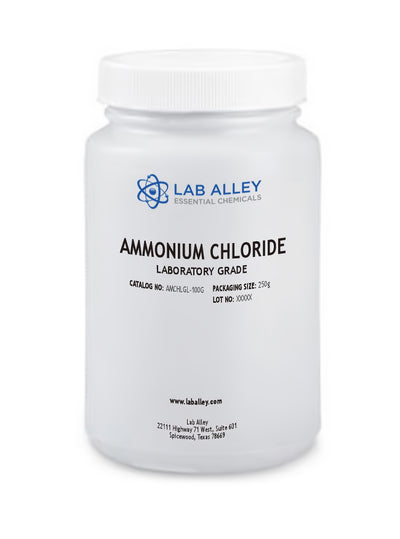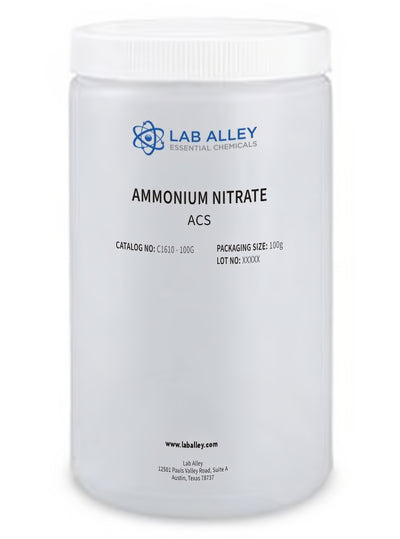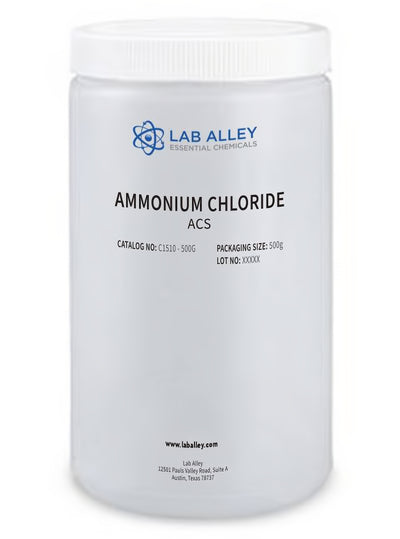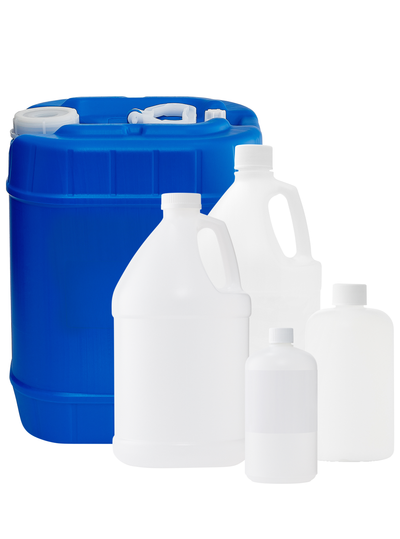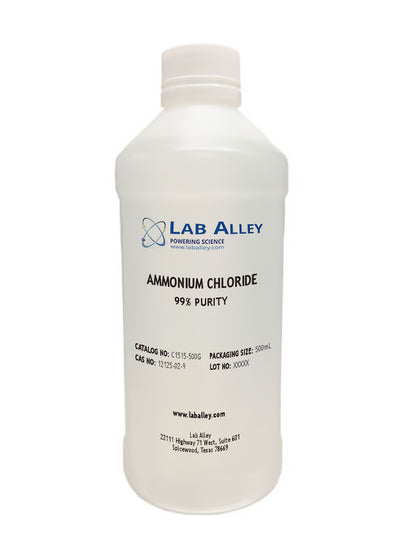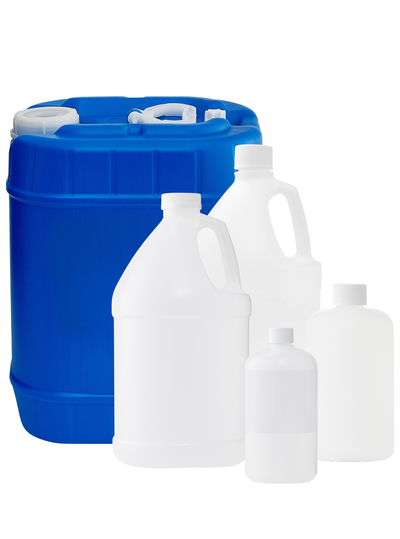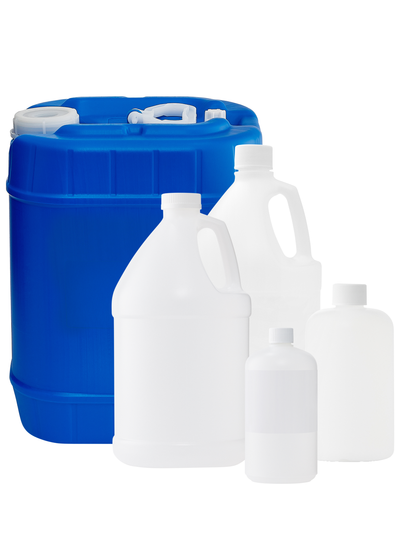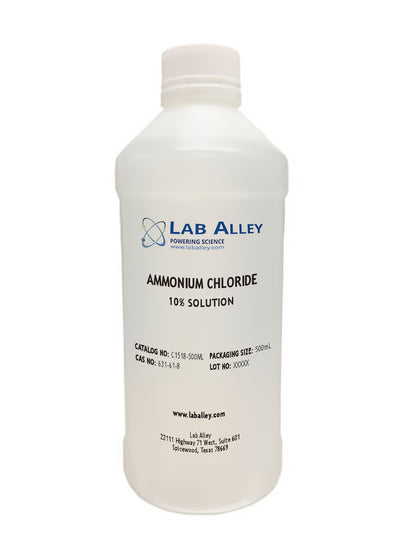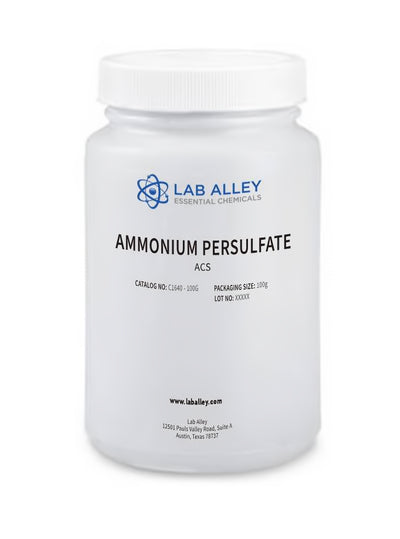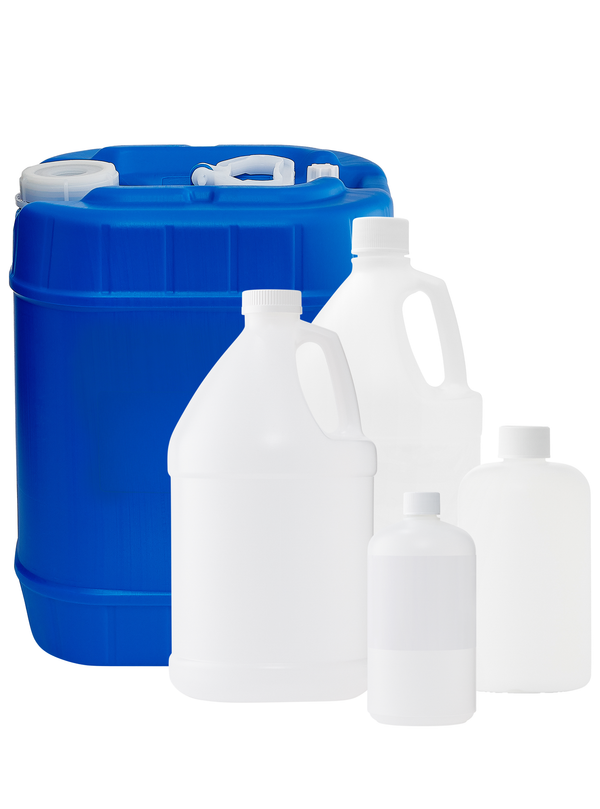
Business Support
Ammonium Phosphate Monobasic ACS Grade
For questions regarding lead time, please contact a member of our Customer Care Team at customercare@laballey.com
Business Support
Description
About Ammonium Phosphate Monobasic ACS Grade
The Ammonium Phosphate Monobasic (APM) is an inorganic chemical, commonly known as Ammonium salt have the chemical formula H6NO4P or NH4H2PO4. It appears as a colorless, odorless solid with high solubility in water at room temperature. It is used as a corrosion inhibitor and pH regulator for different solutions. APM is made by reacting Phosphoric Acid with anhydrous Ammonia at a pH of less than 5.8. Due to its high nitrogen contents, it is also used as an agricultural fertilizer. An ACS grade reagent is a chemical that meets the purity requirements of the American Chemical Society. For dependable, consistent, and repeatable findings, ACS Grade reagents can be utilized in high-quality research labs. Due to its high purity, Ammonium Phosphate, Dibasic, ACS Grade can also be used in food items. Lab Alley is selling its high quality products in the United States of America (USA) online at laballey.com. Ammonium Phosphate, Monobasic, ACS Grade at Lab Alley is ideal for commercial, industrial, and laboratory applications.
COMMON USES AND APPLICATIONS
- Reagent
- Fertilizer
INDUSTRIES
- Baking powder
- Yeast production
PRODUCT INFORMATION
Customer Reviews and Q&A
Safety and Shipping
Please contact us to request a Safety Data Sheet (SDS) and Certificate of Analysis (COA) for Ammonium Phosphate Monobasic ACS.
Business Support
Built for Business.
At Lab Alley, we simplify procurement with custom quotes, credit applications, tax exemptions, and fulfillment support, ensuring on-budget, on-time delivery - your success is our priority.
Apply for Credit
A Lab Alley credit account streamlines purchasing for your business. Our Customer Success Team is available to help you through every step of the process.
Request a Custom Quote
Get a fast, customized quote tailored to your specific needs. Our team ensures accurate pricing and availability to help streamline your purchasing process.

Additional Business Resources
Lab Alley provides access to essential certifications, documents, and other resources to support your business.

Create a Lab Alley Account

RECEIVE exclusive offers, promotions, and discounts on chemicals.

Always have the product you need, when you need it with our AUTOSHIP program.



